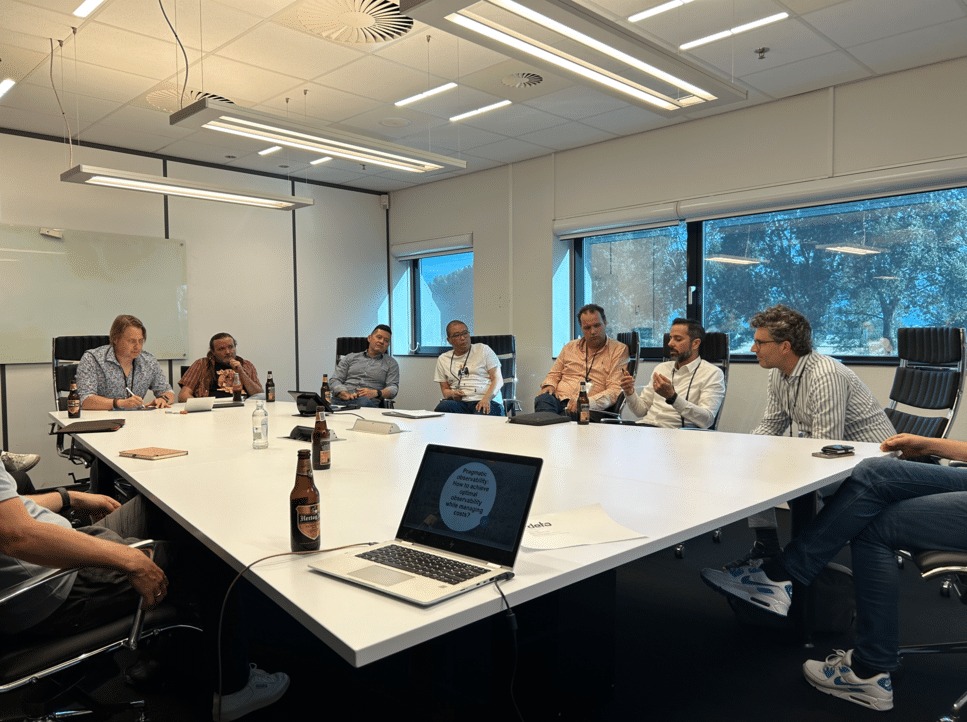Almost every company, in every industry, is aiming to digitally transform. The business impacts of doing so are dominating boardroom conversations, with organisations looking to take the initiative ahead of their competitors.
According to an SAP report, 96% of business leaders say digital transformation is a core business goal. Therefore, it shouldn’t be surprising that company spend on digital transformation is expected to reach $1.7 trillion by the end of 2019 (International Data Corporation), a 42% increase from 2017.
As Ross Mason, Founder and Vice President of Product Strategy at Mulesoft comments – “When it comes to digital transformation, it is no longer a case of ‘if’ but ‘when’ for organisations”.
So, why is digital transformation such a necessity? Simply put, organisations need to evolve to address the changing business landscapes. This is being facilitated by innovations in mobile, social platforms, data science and cloud computing. Digital is changing the way we do everything from communicating and working to traveling and cooking. Those businesses who don’t keep up will surely be left behind.
For those businesses jumping on board the digital transformation wagon, the effects seem to be evident. According to the same SAP report mentioned above, around 70% of business leaders said they’ve seen significant improvement in customer satisfaction due to their efforts in digital transformation. Saying this, it’s not all good news – only 3% of business leaders in the same SAP report had actually completed their transformation projects.
A recent study by Mulesoft, which looked at how 650 internet technology decision makers are handling digital transformation effects, and their impact on IT operations and management, revealed that four out of five businesses are expected to see a negative impact on revenue in the next 12 months if they fail to complete their digital transformation initiatives. The reasons for these negative impacts included challenges in business and IT misalignment (45%), time constraints (43%) and legacy infrastructure and systems (39%).
Most worrying was the fact that two-thirds of ITDMs admitted that they were unable to deliver all digital projects asked of them last year as a result of an IT delivery gap. This is unsurprising considering that, whilst 71% of ITDMs said their IT budget will either increase by less than 10%, or will stay the same in the coming year. They also reported a 27% rise in transformation projects since last year. Clearly, businesses are being asked to do more with less – but this isn’t how digital transformation succeeds?
With IT departments being stretched increasingly thin, and the drive for digital technologies increasing, there is an evident mismatch between what businesses need to deliver, and what they have the capabilities to deliver.
The Mulesoft study reported that, on average, organisations are using 1,020 individual applications across their business, whilst around only 29% of these are currently integrated or connected, and without the technical talent to orchestrate these integrations, this percentage will never increase. As long as this is the case, businesses will continue to struggle to adapt.
As Ross Mason put it – “It’s clear they [CIOs and IT decision makers] are struggling to keep up. Integration challenges are creating an IT delivery gap, and organisations can no longer afford to let it drain time, resources and budget”.
In order to drive digital transformation processes forward, businesses need to focus on hiring the skills that will bridge IT and integration delivery gaps. Firms who fail to do so, will likely be unsuccessful in their digital transformation quest, potentially resulting in a negative impact on revenue.




